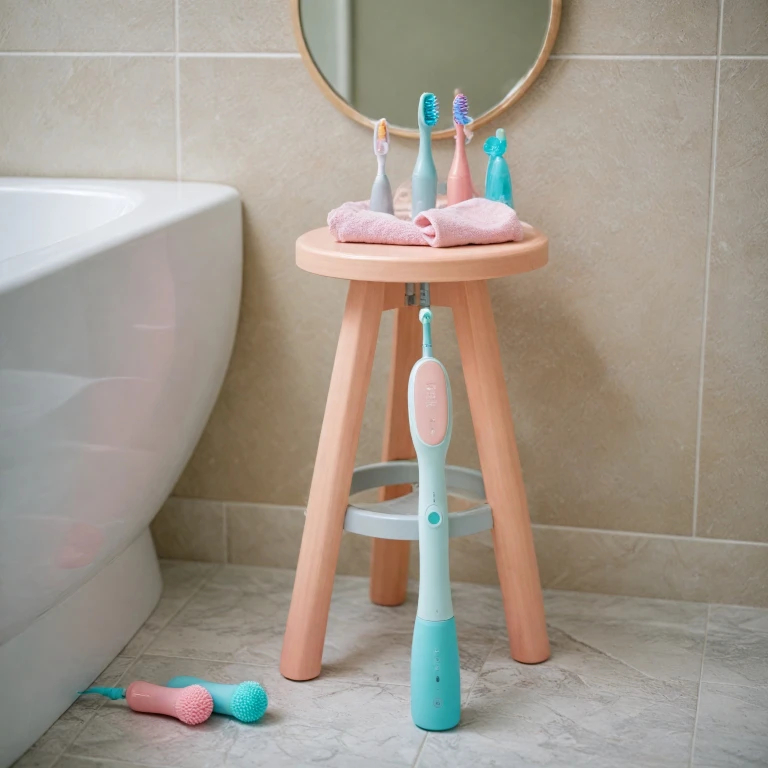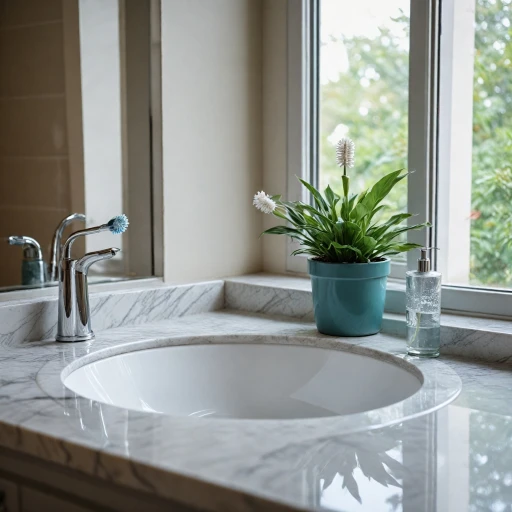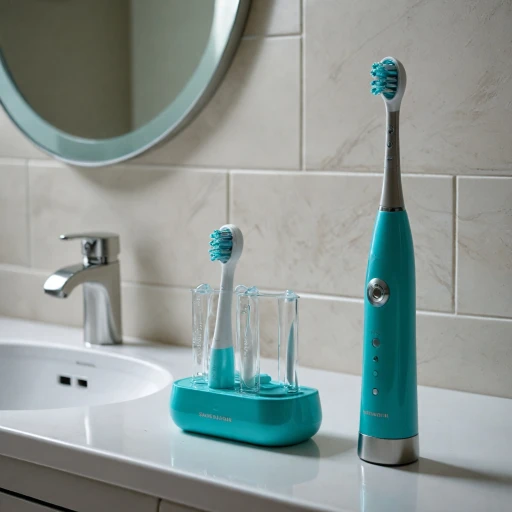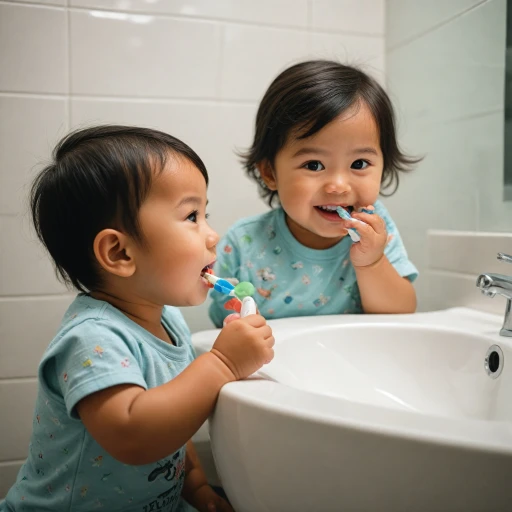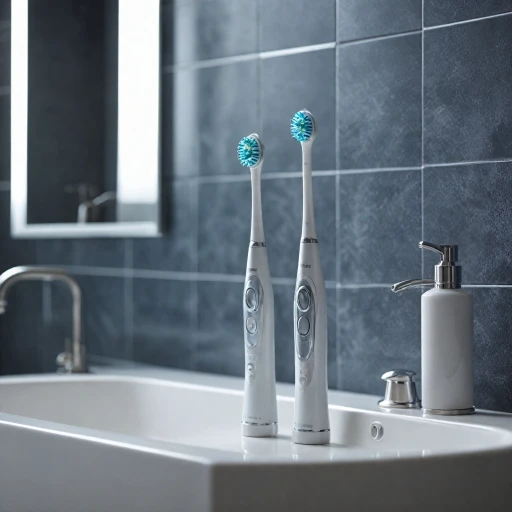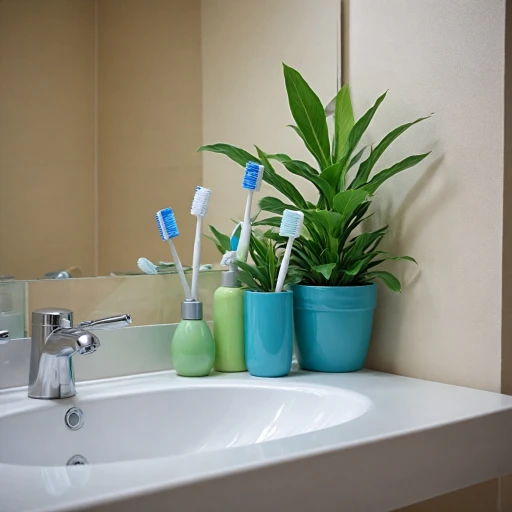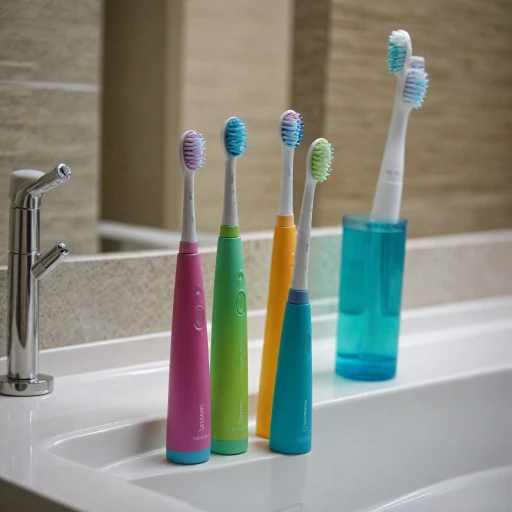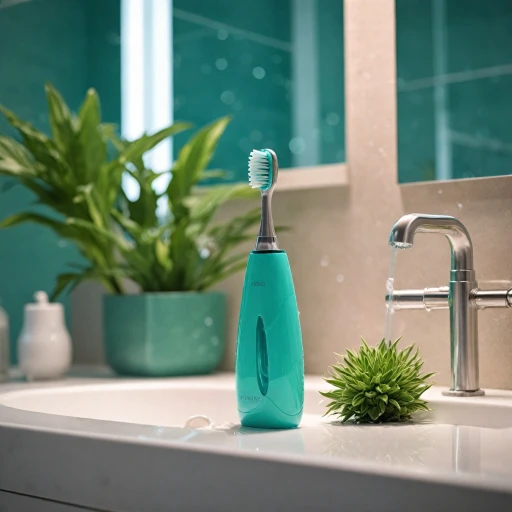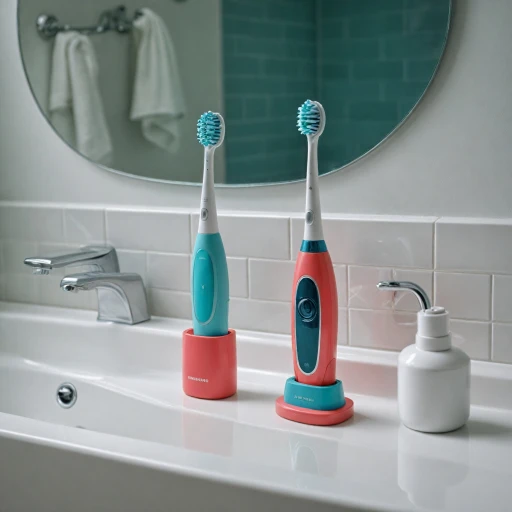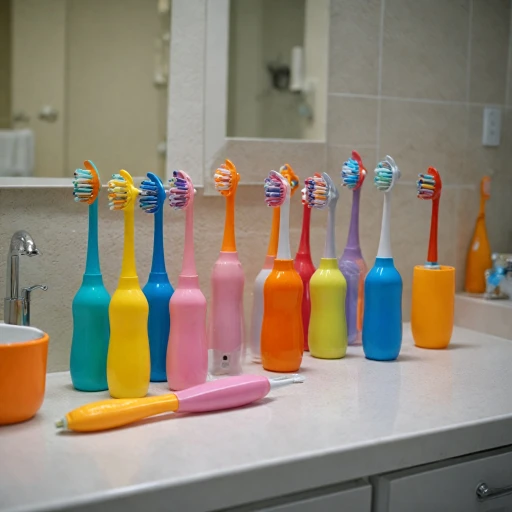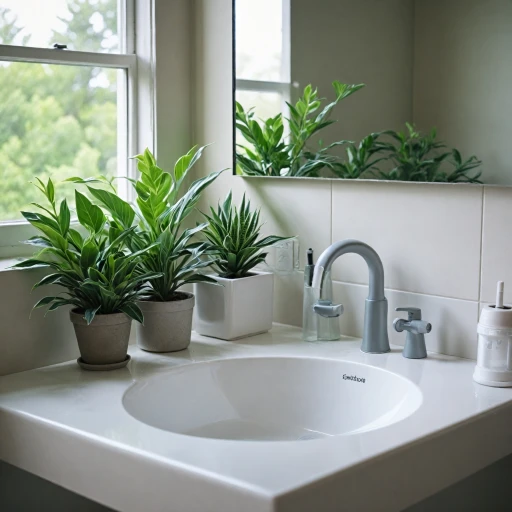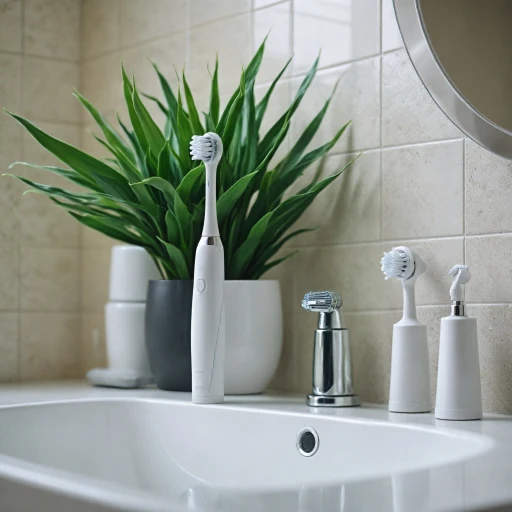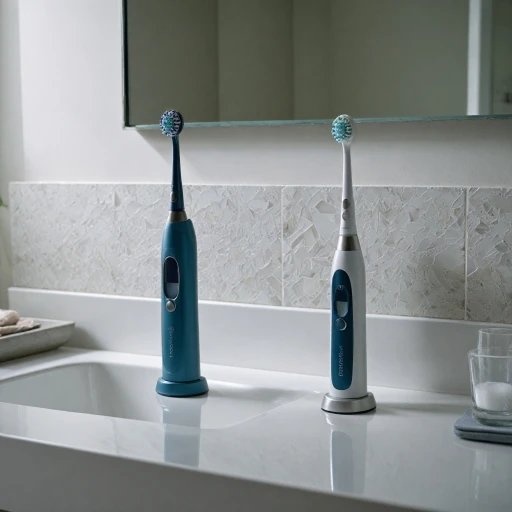
Understanding Baby Oral Hygiene Needs
Importance of Early Oral Care
Understanding the oral hygiene needs of babies is crucial for their overall health and development. From the moment those first baby teeth start to emerge, usually around six months of age, parents should begin to focus on establishing good oral care habits. Early attention to dental health can prevent future issues and set the stage for a lifetime of healthy teeth and gums.
Unique Needs of Baby Teeth
Baby teeth, also known as primary teeth, play a vital role in a child's development. They help with chewing, speaking, and hold space for adult teeth. Because these teeth have thinner enamel compared to adult teeth, they are more susceptible to cavities. Therefore, using the best toothbrush designed specifically for babies is essential to protect their delicate enamel and gums.
Choosing the Right Tools
When selecting a toothbrush for your baby, consider options that feature soft bristles and a small brush head to comfortably fit in their tiny mouths. A finger toothbrush can be a good starting point for infants, allowing parents to gently clean their baby's gums and emerging teeth. As your child grows, transitioning to a baby electric toothbrush can offer more effective cleaning, especially when paired with a suitable toothpaste recommended by pediatric dentistry experts.
Establishing Healthy Habits
Encouraging good brushing habits from an early age is key. Making brushing a fun and engaging activity can help children develop a positive attitude towards oral care. Parents can lead by example, brushing their own teeth alongside their child to demonstrate the importance of maintaining good oral hygiene. Regular visits to a pediatric dentist can also provide guidance and ensure that your child's dental health is on the right track.
Key Features of an Ideal Baby Electric Toothbrush
Essential Features for Baby's First Electric Toothbrush
When it comes to selecting the best electric toothbrush for your baby, understanding the key features that cater to their unique oral hygiene needs is crucial. Babies have delicate gums and developing teeth, so choosing a toothbrush that ensures gentle yet effective cleaning is essential for maintaining good oral health.
- Soft Bristles: The best toothbrush for babies should have extra soft bristles to protect their sensitive gums and emerging baby teeth. Soft bristles help prevent irritation and ensure a comfortable brushing experience.
- Small Brush Head: A small brush head is ideal for reaching all areas of a baby's mouth, ensuring thorough cleaning without causing discomfort. It allows for better maneuverability, especially in tiny mouths.
- Age-Appropriate Design: Electric toothbrushes designed for babies often come with age recommendations, typically starting from a few months old. It's important to choose a toothbrush that matches your child's age and developmental stage.
- Gentle Vibrations: Electric toothbrushes for babies should have gentle vibrations to effectively clean teeth without being too harsh. This feature helps in removing plaque while being gentle on the gums.
- Easy Grip Handle: A toothbrush with an easy-to-hold handle encourages babies to develop good brushing habits. Look for designs that are ergonomic and suitable for little hands.
- Attractive Colors and Designs: Bright colors and fun designs can make brushing more appealing to children, turning it into an enjoyable activity rather than a chore.
For more detailed insights on selecting the perfect electric toothbrush for your toddler, you can explore this comprehensive guide.
Safety Considerations for Baby Toothbrushes
Considerations for Safe Brushing
Ensuring the safety of a child’s delicate oral environment is paramount when selecting a toothbrush for young ones. Here are a few essential safety considerations that should guide your choice:
- Soft Bristles: Children's gums and baby teeth are particularly sensitive, making soft bristles a must. Opt for toothbrushes specifically designed for babies to avoid damage to their delicate enamel and irritation to their gums.
- Size and Shape: A toothbrush designed for a baby should have a small brush head that fits comfortably in a child's mouth, making it easier to reach all parts of the mouth without causing discomfort.
- Age Appropriateness: Be mindful of the age recommendations provided by professionals in pediatric dentistry. An age-appropriate toothbrush ensures safety and effectiveness, catering to the unique needs of children at various growth stages.
- Material Safety: Verify that the toothbrush is made of safe, BPA-free materials. This ensures that your child is not exposed to harmful chemicals while brushing.
- Design Features: Some toothbrushes come with added features like rubberized grips or non-slip handles, which are beneficial for both parents and young children adapting to brushing habits.
When it comes to best practices, refer to advice from dental associations and certified pediatric dentists to ensure optimal dental health for your child. Prioritizing these safety aspects during selection ensures that your choice not only supports effective cleaning but also provides a positive experience for babies as they develop good oral care habits.
Comparing Manual vs. Electric Toothbrushes for Babies
Manual Versus Electric: Which is Best for Young Ones?
When it comes to choosing the most suitable toothbrush for babies, parents often weigh the benefits of manual and electric toothbrushes. Let's delve into some key differences and considerations between these options for young children's oral care. To start, manual toothbrushes have been the traditional choice for many due to their price point and simplicity. These toothbrushes can come in various sizes and designs catered specifically for children's smaller mouths. Manual toothbrushes with soft bristles are gentle on baby teeth and gums, ensuring a comfortable brushing experience without causing irritation. On the other hand, electric toothbrushes have been gaining popularity due to their effectiveness. Pediatric dentistry experts often advocate for electric models as they offer superior plaque removal and improve overall dental health. These toothbrushes can reach areas that might be challenging for a manual brush, ensuring comprehensive oral hygiene. Furthermore, electric toothbrushes often come with built-in timers, helping guardians ensure children brush for the recommended time. It’s important to note the age factor when choosing between electric and manual. Electric toothbrushes are typically recommended for children over the age of 24 months, when they have developed more motor skills to handle them safely. For younger babies, a manual toothbrush or finger toothbrush may be more appropriate to introduce them to brushing. In terms of health benefits, both types can be effective when used correctly. The American Dental Association emphasizes the importance of proper brushing techniques and encourages regular brushing, whether using a manual or electric option. It's paramount to make brushing a fun and engaging activity, using soft bristles and maintaining good oral hygiene practices. Ultimately, the best toothbrush choice pertains to what works best for the child's comfort and the parents' preference, considering both types can lay the foundation for good long-term dental health.Top Recommendations for Baby Electric Toothbrushes
Top Picks for Baby Dental Care
When considering the best electric toothbrush for babies, it's crucial to focus on the specific dental needs of children in these early stages. High-quality options can ensure good oral health from an early age and set the foundation for proper dental hygiene habits. Here's a look at some top recommendations that cater to the unique needs of babies and toddlers.- Baby-Friendly Designs: Many electric toothbrushes come with smaller brush heads designed specifically for tiny mouths. Soft bristles are essential to protect the delicate gums and softly clean baby teeth without irritation. Look for brush heads labeled as extra soft, aiming to provide gentle yet effective cleaning.
- Versatility and Convenience: Some toothbrushes feature multiple modes tailored for different stages of age and dental development. This adaptability ensures continuous use over several months as your child’s oral care needs evolve. Additionally, cost-effective options that offer versatility in brushing modes can maintain dental health without breaking the bank.
- Interactive and Fun: To encourage enthusiasm for brushing, certain toothbrushes incorporate playful elements like music or lights. These features can engage children, making the brushing routine something they look forward to, rather than a chore.
- Ease of Use: A simple, ergonomic handle is important for parents when assisting infants and toddlers with their brushing. Easy-to-grip designs help ensure that caregivers can maneuver the toothbrush effectively, ensuring comprehensive cleaning.
Tips for Encouraging Good Brushing Habits in Babies
Fostering Positive Brushing Routines
It's important to start good oral hygiene practices early to ensure your child's dental health. Begin by making brushing a fun and engaging activity. Consider these tips to encourage good brushing habits in your child:- Make It a Routine: Incorporate brushing into your child's daily routine by brushing at the same time every day. This instills a sense of regularity and makes it easier for your child to remember to brush their teeth.
- Choose the Right Time: Find a time when your child is most relaxed. For some, this might be right before bed as part of a calming nighttime ritual, while others may prefer morning brushing right after breakfast.
- Lead by Example: Children often imitate their parents. By demonstrating good brushing habits yourself, you are encouraging your child to mimic your behavior and develop their own good routines.
- Use a Reward System: For younger children, using a simple reward system can be an effective way to motivate them. Stickers, a small treat, or praise can be given as a reward for successful brushing.
- Make It Fun: Use a toothbrush that plays music or has a timer with fun sounds to make brushing more exciting. Opt for toothpaste flavors that your child likes, keeping in mind the best options for their age.
- Educate on Oral Health: As your child grows, explain the importance of dental hygiene and how brushing helps prevent cavities and other oral health issues. Knowledge about the benefits of brushing can empower children to take responsibility for their own oral care.
